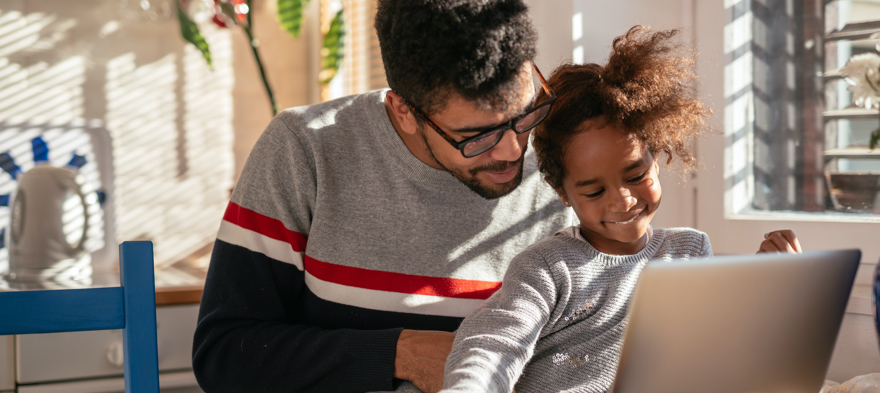
Apr 17, 2020 12:00:00 AM
Once again, our kids and communities are going to be hit hardest when the last respiratory droplet of the coronavirus dries up.
That’s what I thought to myself recently while standing in front of Jesse Owens Community Academy.
The walls in my house were finally closing in, so I took a break from the shelter in place provision and ventured out for a walk around my neighborhood.
On that excursion, I gained an appreciation for the simpler things in life—a renewed sense of safety and security in moving to a neighborhood in Chicago that was a little more walkable than the one I’d lived in the majority of my life. I listened to birds chirping and picked up a visual reminder that it’s time to start lawn maintenance. That experience offered a brighter side to this pandemic.
But that moment was short-lived as I was thrown back into reality when I turned the corner of 124th and State Street where the elementary school stood.
Since the spread of the COVID-19 virus, I’ve been most concerned about its impact on the lives of Black, Brown, poor and other marginalized students. So at that moment, I naturally started to think about the fate of the mostly low-income students at the Level 2, intensive support public school and all those in similar situations around the country.
Here are the facts.
Before this pandemic even hit, in some of the most progressive cities across the country, there were significant opportunity gaps between Black, Latinx and White students that I and other activists have been fighting to close.
Now, with students being out of school due to social distancing guidelines, these gaps are sure to widen, even with the district's rollout of remote and e-learning. One of the most concerning and glaring gaps is the digital divide.
Nearly 200,000 families across Chicago are without internet. Statewide, 71% of survey responses from school districts identified obstacles in remote teaching, with less than 10% having the ability to teach solely online.
While some internet providers have announced that they’re providing low-income families with free internet services through the Keep Americans Connected Pledge, those seemingly generous gestures come with strings attached. For example, up until recently, families that had outstanding balances with Comcast weren’t eligible to take advantage of their Internet Essentials program which offers 60 days of free internet.
Because of the efforts of Oakland activist Dirk Tillotson, Comcast felt the pressure from over 2,000 Oaklanders and recently removed those barriers for low-income families.
But Comcast is just one of more than 650 internet service providers across the country. To influence other ISPs, we need the Federal Communications Commission to step up and lead.
Like the other providers, the FCC has an initiative called the Lifeline Program where they offer “...up to a $9.25 monthly discount on service for eligible low-income subscribers.” They also have the ability to provide coverage in areas that are typically dead zones.
However, during the COVID-19 crisis, they’ve only gone so far as to waive some standard restrictions but low-income users still have to pay monthly usage fees. That just won’t do.
The FCC needs to follow suit and go even further by imploring our nation’s telecommunications companies to provide low-income families with free internet, no strings attached.
And people around the country approve this message. That’s why chiefs of education are inundating the FCC with letters. That’s why other activists and I are rallying our communities to pressure the FCC for change now, not later. That’s why outstanding teachers are pointing out that denying internet to students right now is akin to denying them their right to free public education.
So if remote and online learning are our short-term solutions to administering public education, it has to be all hands on deck to fully support that right and our most high need families.
The FCC can narrow the digital divide, but only if we in Chicago, throughout Illinois and across the United States use our collective voices to demand what’s right.
Tanesha Peeples is driven by one question in her work—“If not me, then who?” As the former Deputy Director of Activist Development for brightbeam, Tanesha merges the worlds of communications and grassroots activism to push for change in the public education system. Her passion for community and relentless mission for justice and liberation drive her in uplifting and amplifying the voices and advocacy of those that are often ignored. Tanesha wholeheartedly believes that education is the foundation for success. Her grand vision is one where everyone—regardless of ethnicity, socioeconomic status, gender or ZIP code—can have access to a comfortable quality of life and enjoy the freedoms and liberties promised to all Americans. And that's what she works towards every day.
Few issues in education spark more tension and debate than standardized testing. Are they a tool for equity or a burden on students? A necessary check on school systems or a flawed measure of...
Charter schools are public schools with a purpose. Operating independently from traditional school districts, they're tuition-free, open to all students, and publicly funded—but with more flexibility...
Despite the benefits of a diverse teaching force, prospective teachers of color fall out of our leaky preparation pipeline at every stage: preparation, hiring, induction, and retention. Here’s what...
Ed Post is the flagship website platform of brightbeam, a 501(c3) network of education activists and influencers demanding a better education and a brighter future for every child.
© 2020-2025 brightbeam. All rights reserved.
Leave a Comment